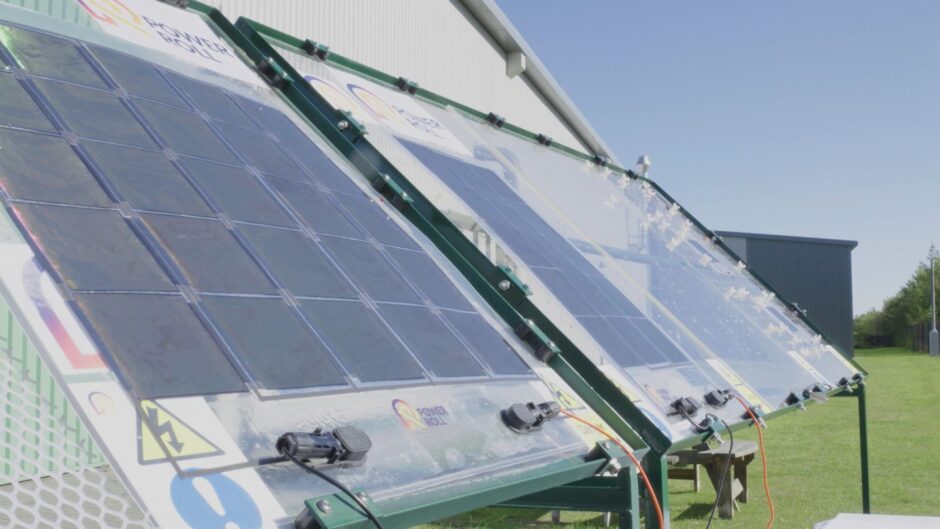 © Supplied by Power Roll
© Supplied by Power Roll A developer of innovative ‘crisp packet’-thin solar photovoltaic (PV) film, which does not contain expensive rare earth materials, plans to build a 1 GW factory in the north of England, according to a person familiar with the matter.
Power Roll is currently in discussions with investors to raise £30 million to build the factory in County Durham, which would allow the company to “scale globally”, the person said. The solar film developer is “undergoing the fundraise at the moment” and “looking for strategic investors” that can offer synergies in targeted geographies or verticals, the person added.
According to the person, Power Roll will “address the UK market” directly from the factory, as well as pursuing a “partnering and licensing model globally”.
In September 2020, Power Roll raised £2.5m in growth capital from private equity firm Maven, followed by a £5.8m equity funding round in February 2021 to scale up solar film manufacturing from investors including Indigo 7 Ventures, Kero Development Partners and RAB Capital.
It later secured a further £3.6m from “convertible loan and advance subscription agreements” after the accounting period ending 30 September 2023, according to a statement on Companies House.
Power Roll signed a memorandum of understanding this month with Amcor (NYSE: AMCR), a global packaging solutions company with headquarters in Zurich, in Switzerland, to collaborate on advancing the development of lightweight solar PV film as a low-cost alternative to silicon solar panels.
Instead of using expensive and finite rare earth minerals such as indium and gallium, which are sometimes used in thin-film solar panels to optimise light absorption and conversion to electricity, the company’s technology uses perovskites, an abundant family of crystals that can assist with solar absorption.
“Power Roll and Amcor will hold further discussions on final terms and arrangements for Power Roll’s ongoing funding round, which will be subject to respective internal approvals,” the companies said in a statement in November.
The new solar film factory would be located in County Durham, to the north of Durham and south of Sunderland, where the company already has a laboratory-sized, small-scale pilot factory.
Power Roll was founded in 2012 and is led by chief executive Neil Spann. The company is focused on growth market opportunities, selling PV microgroove technology that is “not reliant on rare earth minerals and can be manufactured using roll-to-roll processes”.
Roll-to-roll fabrication involves printing or laminating technology applications onto a flexible rolled material and is often used to make electronics, for example, using metal foil, or flexible glass or plastic.
This is where Power Roll has synergies with New York Stock Exchange-listed Amcor, which is already involved in technical film applications that use a roll-to-roll process, as well as ‘advanced barrier technologies’.
Amcor said it wants to enhance its presence in roll-to-roll manufacturing and barrier technology, and to explore opportunities to produce and market components for PV film solutions. Together, the companies said they believe Power Roll’s technology can “revolutionise the global solar energy industry”.
Frank Lehmann, vice president of corporate venturing and open innovation at Amcor, said in a statement: “The innovative solar film technology developed by Power Roll has the potential to revolutionize the solar energy industry, providing ultra-low-cost green electricity on a global scale. Through its partnership with Amcor, we are confident that Power Roll will continue to contribute significantly to the global transition towards net zero.”
Founded by chief scientist Dr Alexander John Topping, Power Roll seeks to address a market for lightweight and flexible solar film that can be easily installed on rooftops across the UK.
The company said it hopes to unlock $250 billion of an untapped market for commercial and industrial rooftops.
An estimated 12 billion-metres squared of UK rooftops, equating to one in every three commercial rooftops, cannot accommodate thick solar panels, according to the company.
